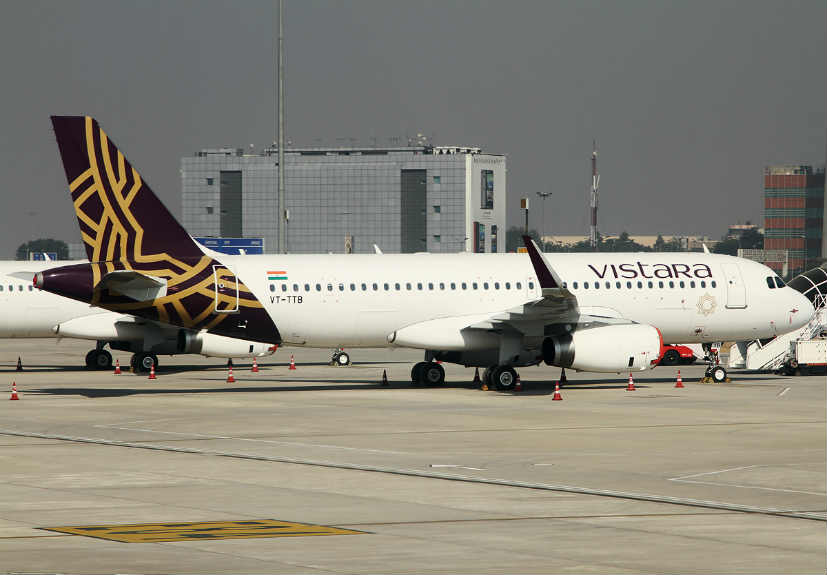In its continuous effort of driving innovation to provide the most customer-centric products and service, Vistara has created a unique robot using Artificial Intelligence (AI) technology that can assist customers, address their queries and entertain them. During its initial stage, RADA will be placed at Vistara’s Signature Lounge at Delhi Airport’s Terminal 3 in India from July 5, 2018 to assist customers using the lounge before they board their flights. ‘RADA’ will be further developed over a period of time in terms of functionality and features for future use cases, after gauging customer feedback.
At present, the robot can scan boarding passes and further provide information on the terminal, departure gates, weather conditions of destination city, real time flight status as well as information about Vistara’s products and services. It greets customers and interacts with them using basic hand movements, and is capable of moving around in the lounge on predefined pathways. Additionally, it can engage with kids and adults alike by playing games and other multimedia content such as songs and videos.
Commenting on the introduction of ‘RADA’, Vistara’s Chief Executive Officer, Mr LeslieThng said: “Innovation is one of the core values engrained in the DNA of Vistara’s culture, which we have fostered within the organization in many ways. RADA is a manifestation of this endeavour. Vistara has disrupted the market through several innovations with the sole objective of redefining air travel in the country, while making its processes more robust and resources more effective. With RADA, we aim to change the way people interact and fly with an airline. We will be developing ‘RADA’ based on customer feedback and equipping it with the most effective features in the time to come. Our steadfast focus remains to be on delighting customers across all touchpoints, and we’re confident that ‘RADA’ will help us take the ‘new feeling’ to the next level.”
‘RADA’ has been envisioned and incubated under Vistara’s Innovation initiative. It is conceived, designed and engineered by its team of technology experts and apprentices from Tata Innovation Lab with support from students of reputed institutions. It is arguably one of India’s most economical robots completely made of indigenous components, thus making a compelling ‘Make in India’ story. ‘RADA’ is built on a chassis of four wheels, enabling it to rotate 360 degrees, and it has three in-built cameras for cognitive interaction. Combining these components with an effective voice technology, Vistara has developed the robot to provide a simple solution to cater to the emerging and future trends.
Explaining what sparked the idea behind ‘RADA’, Vistara’s Chief Information and Innovation Officer, Mr Ravinder Pal Singh: “It was a realisation that the talented, young employees engaged in ground services, gain immense customer service experience on the job, but the limited scope of their routine work could challenge their true potential. Some of them spend decades within the walls of an airport, assisting customers. Vistara is an organization that encourages its employees to look beyond boundaries and leverage the talent and skills of such employees. Therefore, we thought of inventing a robot that can help us enhance customer experience by gradually taking over the routine, mundane tasks. The basic premise of the thought was to develop a simple and extremely cost-effective practical robot that can engage in basic human interaction to begin with, and can further be developed to perform more complex tasks, as consumer habits continue to evolve in the technological age where humans and machines will complement and create a evolved harmonious evolution.”

